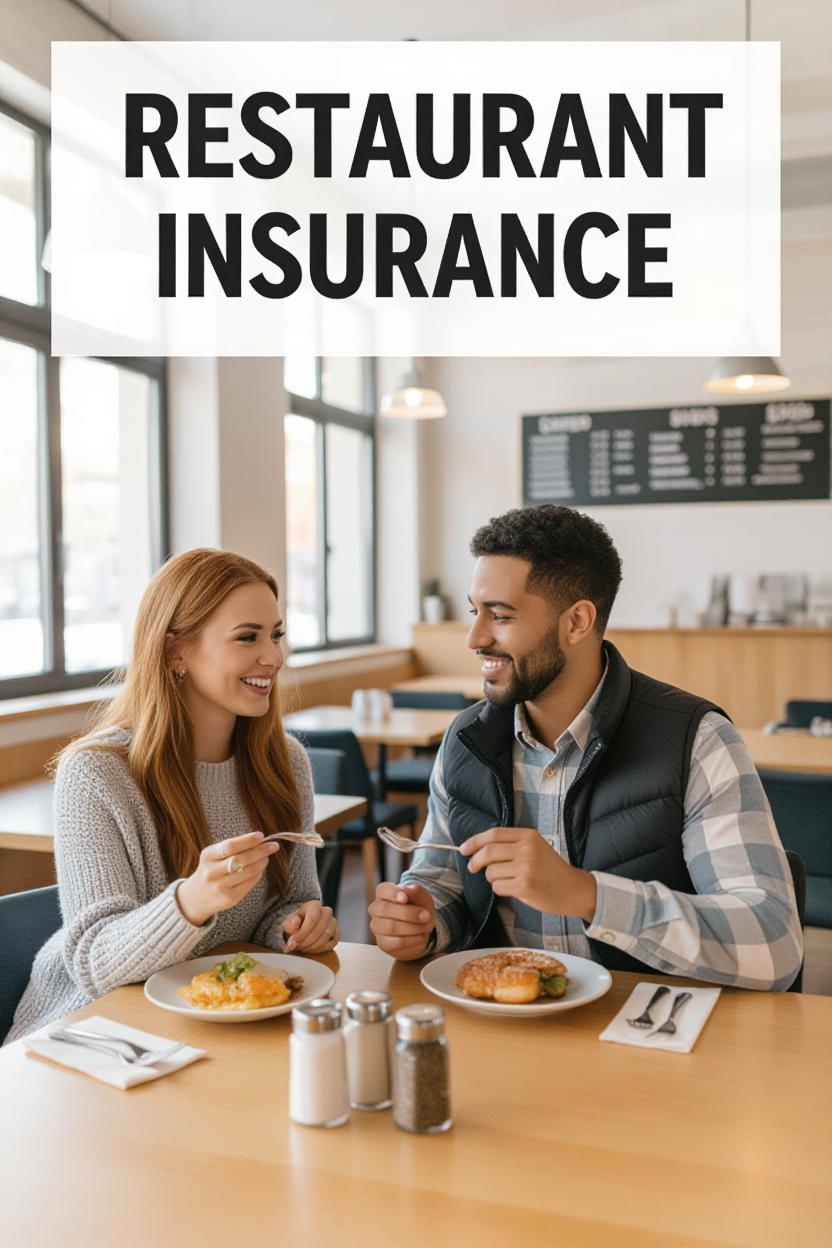Restaurant Insurance 101: A Complete Guide for Owners (2025)
Restaurant business insurance Running a restaurant is your passion. You’ve perfected your menu, designed your dining room, and built a dedicated team. But in an industry filled with unpredictable risks—from a kitchen fire to a slip-and-fall lawsuit—your passion needs protection. That protection has a name: restaurant insurance.
Navigating the world of commercial insurance can feel overwhelming, but it is the single most important, non-negotiable investment you will make in your business’s longevity. This guide will break down exactly what restaurant insurance is, what coverages you absolutely need, and how to choose the right policy for your unique establishment.
What is Restaurant Insurance?
Restaurant insurance is not a single policy. It is a package of different insurance coverages specifically designed to protect food and beverage businesses from the unique risks they face every day. A comprehensive plan protects your property, your employees, and your business from financial ruin in the event of an accident, lawsuit, or disaster.
The Core Coverages Every Restaurant Must Have
While your exact needs will vary, a solid restaurant insurance plan is built on a foundation of several key policies.
1. General Liability Insurance
This is the bedrock of your protection. General Liability covers “third-party” claims for bodily injury or property damage. If a customer slips on a wet floor, gets sick from your food, or has their coat damaged in your establishment, this policy covers their medical bills, your legal defense costs, and any settlements or judgments. Without this, a single slip-and-fall lawsuit could bankrupt your business.
2. Commercial Property Insurance
This policy protects the physical assets of your business. It covers the cost to repair or replace your property if it’s damaged by events like fire, theft, or a natural disaster. This includes:
- The Building: If you own the property.
- Your Equipment: Ovens, refrigerators, point-of-sale (POS) systems, and kitchen tools.
- Inventory: All of your food and beverage stock.
- Furniture and Fixtures: Tables, chairs, and decor.
3. Workers’ Compensation Insurance
If you have employees, this is legally required in almost every state. Workers’ Compensation covers medical expenses and a portion of lost wages for employees who are injured or become ill on the job. A kitchen is a high-risk environment for burns, cuts, and falls. This policy protects your team and shields you from lawsuits related to workplace injuries.
4. Liquor Liability Insurance
If you sell or serve alcohol, this is non-negotiable. General Liability insurance does not cover alcohol-related incidents. If an intoxicated patron causes a fight, damages property, or gets into a drunk driving accident after leaving your establishment, you can be held liable. Liquor Liability insurance is specifically designed to cover these high-risk scenarios. Restaurant business insurance.
Bundling for Savings: The Business Owner’s Policy (BOP)
For many small to medium-sized restaurants, a Business Owner’s Policy (BOP) is the most efficient and cost-effective option. A BOP bundles General Liability and Commercial Property insurance into a single, more affordable policy. You can then add other essential coverages, like Liquor Liability, to customize it for your needs.
Other Crucial Coverages to Consider
- Business Interruption Insurance: If a covered event (like a fire) forces you to shut down temporarily, this policy replaces lost income and covers ongoing expenses like rent and payroll, allowing you to survive the closure.
- Food Spoilage Insurance: If a power outage causes your refrigerators and freezers to fail, this covers the cost of replacing thousands of dollars worth of spoiled inventory.
- Employment Practices Liability Insurance (EPLI): Protects you from lawsuits filed by employees alleging discrimination, wrongful termination, or harassment.
How Much Does Restaurant Insurance Cost?
The cost of restaurant insurance varies widely based on several factors:
- Location: High-traffic urban areas typically have higher premiums.
- Size and Sales Volume: A larger restaurant with higher revenue presents more risk.
- Alcohol Sales: Selling liquor significantly increases the cost due to the need for liquor liability.
- Services Offered: A fine-dining restaurant has different risks than a small cafe or a delivery-only ghost kitchen.
- Claims History: A history of frequent claims will raise your rates.
On average, a small restaurant owner might expect to pay anywhere from $3,000 to $10,000 per year for a comprehensive package.
The Takeaway
Your restaurant is more than a business; it’s a dream you’ve built from the ground up. Restaurant insurance is the essential framework that protects that dream from the unexpected. By understanding these core coverages and working with an agent who specializes in the food service industry, you can build a policy that lets you focus on what you do best: creating unforgettable experiences for your customers.

I’m a dedicated content creator and researcher with a strong passion for technology, innovation, and digital culture. At Howh.net, I focus on delivering well-researched, accurate, and engaging articles that help readers understand complex topics in a simple and practical way. My goal is to inform, inspire, and make reliable information


3 Comments